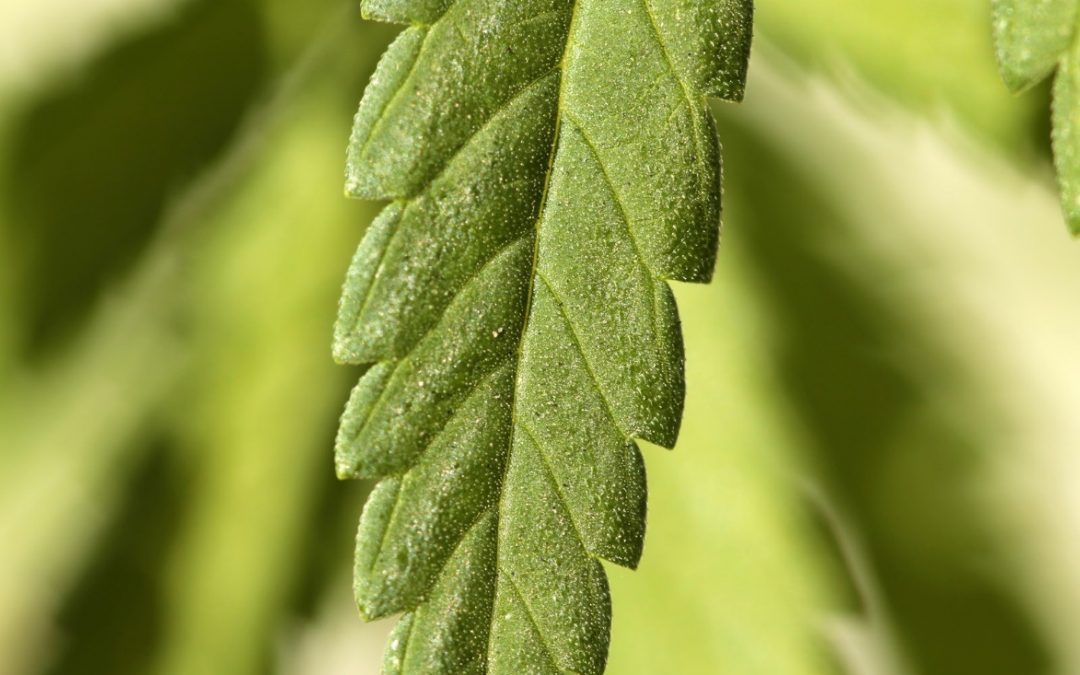“My wife and I moved from Boston to Hawaii last year, I have medical cannabis card, and have a question. The medicine that’s available to me (flower) have higher levels of THC A vs THC and find the cannabis does not appear to be as strong as the medicine I purchased in Boston. If you could explain the difference between THC vs THC-A that would be very helpful.”
This is a great question, and one of the many that create confusion for cannabis patients. THC-A and THC are related chemically, but can, for medical purposes, be thought of as separate items. Boston medical marijuana doctor Jordan Tishler discusses the uses of THC-A over THC.
The Differences Between THC and THC-A
When the cannabis plant grows, it doesn’t actually make (much) THC. It makes THC-A in abundance. THC is really a break-down product of THC-A. When we heat botanical cannabis, by smoking it (not recommended) or vaporizing it, that converts the THC-A into THC. That process is called decarboxylation. Burning cannabis is a poor (inefficient) way to cause that conversion, so in addition to losing much of the cannabis medicine to the universe when you’re not inhaling, you only get a fraction (~30%) of the THC converted. Good flower vaporizers, on the other hand, convert at closer to 80%. Clearly you waste a lot by burning and will save a lot of money using a vaporizer.
To confuse things more, many stores and dispensaries list the THC and THC-A differently. Some will list them separately. For example, THC 1.2%, THC-A 17.9%. When thinking about the potency of that strain, you should add those two numbers together, in this case 19.1%. This sum is the number to use when comparing flower options. To optimize the benefit of cannabis as medicine by allowing for the Entourage Effect, I recommend strains that fall between 15-20% THC+THC-A.
Other dispensaries add the numbers for you and present them as THC alone. While this is helpful, it can also be confusing when comparing with stores that don’t do it that way.
When Should I Use THC-A Instead of THC?
Now we know the difference between THC and THC-A, when do we want to focus on one or the other? THC is the best researched of the two, with over 60 years of study. THC has been shown, to various levels of proof, to be good at treating pain, insomnia, nausea, poor appetite, anxiety, and depression. It has also been claimed to be anti-tumor, with some preliminary evidence, and to be anti-inflammatory (with very little evidence).
When to Use THC
We also know that pure THC, as in the pharmaceutical medicine Marinol, is not very effective. The problem is that it causes severe intoxication before achieving medical benefit. Many have refused to continue taking it after trying it. We now understand that while THC is the main medicine, in cannabis it comes along with a group of other chemicals I call the “helper chemicals” that includes a trace of CBD, for example, that modulates the effect of THC to achieve the expected result. This is called the Entourage Effect as mentioned above.
It’s important to understand that using THC to treat all of those important illnesses mentioned above will come with some amount of intoxication – that’s just a side effect of THC. There’s no getting around this, but with careful attention to dose, timing, and route of administration, such side effects can be minimized.
When to Use THC-A
THC-A is very abundant and ought to be readily available and cheap. However, since demand is low, few dispensaries carry it at all. THC-A has to be extracted from cannabis carefully and without any heat so that it isn’t converted to THC, but it is not difficult to learn how to make a THC-A tincture.
THC-A is great to be used as a medicine. It’s a strong anti-inflammatory with over 10-20 times the potency of CBD, and better proof. Studies showing benefit from THC-A were done in ex-vivo human tissue (surgically removed diseased tissue) from Crohn’s patients. We have no such studies for CBD or THC for that matter. Further, THC-A is entirely non-psychoactive, and unlike CBD, does not interact with common conventional medications. I have seen considerable benefits to patients in my practice using THC-A, with or without THC, for patients with auto-immune or chronic diseases like Crohn’s Disease, Ulcerative Colitis, Lupus, and Rheumatoid Arthritis.
Now, before you run out looking for THC-A, or start following the recipe above, please have a look at the list of diseases I just mentioned. These are relatively rare illnesses and are fundamentally auto-immune. Back pain, knee pain, shoulder pain, neck pain, and the like are usually caused by Osteoarthritis which is a mechanical pain from wear and tear on the joints. It is not an auto-immune nor inflammatory problem. THC-A will not help OA.
THC-A dosing can be a bit complex, it can take quite some time to kick in, and evaluating the success of treatment really needs to be done by a knowledgeable professional.
Contact Boston Medical Marijuana Doctor Jordan Tishler About THC-A
Those who are considering adding THC, THC-A, or any compound found in medical marijuana to their treatment plan should first consult with a physician who has extensive experience with cannabis. Massachusetts medical marijuana doctor Jordan Tishler has spent years helping veterans use medical marijuana and can help you determine if using cannabis alongside conventional treatments may be beneficial. For more information, or to set up a consultation with Dr. Jordan Tishler and his team at InhaleMD, call us at (617) 477-8886 today.

